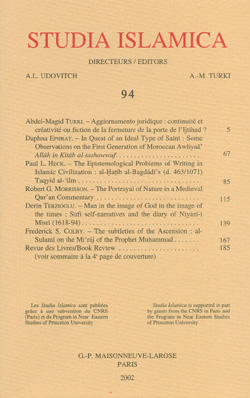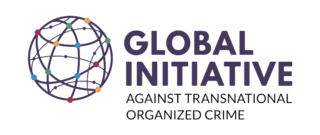A citation index is a kind of bibliographic index, an index of citations between publications, allowing the user to easily establish which later documents cite which earlier documents. A form of citation index is first found in 12th-century Hebrew religious literature. Legal citation indexes are found in the 18th century and were made popular by citators such as Shepard's Citations (1873). In 1961, Eugene Garfield's Institute for Scientific Information (ISI) introduced the first citation index for papers published in academic journals, first the Science Citation Index (SCI), and later the Social Sciences Citation Index (SSCI) and the Arts and Humanities Citation Index (AHCI). American Chemical Society converted its printed Chemical Abstract Service into internet-accessible SciFinder in 2008. The first automated citation indexing was done by CiteSeer in 1997 and was patented. Other sources for such data include Google Scholar, Microsoft Academic, Elsevier's Scopus, and the National Institutes of Health's iCite.
Scopus is an abstract and citation database launched by the academic publisher Elsevier in 2004.

Google Scholar is a freely accessible web search engine that indexes the full text or metadata of scholarly literature across an array of publishing formats and disciplines. Released in beta in November 2004, the Google Scholar index includes peer-reviewed online academic journals and books, conference papers, theses and dissertations, preprints, abstracts, technical reports, and other scholarly literature, including court opinions and patents.

Studia Islamica is a biannual peer-reviewed academic journal covering Islamic studies focusing on the history, religion, law, literature, and language of the Muslim world, primarily of the Southwest Asian and Mediterranean regions. The editor-in-chief is Houari Touati. Articles are published in English or French.

The Journal of Immunology is a biweekly peer-reviewed medical journal that publishes basic and clinical studies in all aspects of immunology. Established in 1916, it changed its name to Journal of Immunology, Virus Research and Experimental Chemotherapy from 1943 to 1949, then returned to the original Journal of Immunology in 1950. It is the official journal of the American Association of Immunologists. The editor-in-chief is Gail A. Bishop.

The Journal of Natural Products is a monthly peer-reviewed scientific journal covering all aspects of research on the chemistry and/or biochemistry of naturally occurring compounds. It is co-published by the American Society of Pharmacognosy and the American Chemical Society. The editor-in-chief is Philip J. Proteau.
Critical Care is an online open access peer-reviewed medical journal covering intensive-care medicine. The founding editor and the current editor-in-chief is Jean-Louis Vincent of the Université Libre de Bruxelles. Critical Care was established in 1997 and is currently published by BioMed Central.

Immunity is a monthly peer-reviewed medical journal of immunology published by Cell Press.

Biochimie is a monthly peer-reviewed scientific journal covering the fields of biochemistry, biophysics, and molecular biology. It is published by Elsevier on behalf of the Société française de biochimie et de biologie moléculaire. All articles are currently in English; previously articles in French were also published. As of March 2021, the editor-in-chief is Bertrand Friguet, succeeding Richard H. Buckingham.

The Journal of Zoological Systematics and Evolutionary Research is a peer-reviewed scientific journal published by Wiley-VCH in collaboration with Hindawi. It covers the systematic study of animal sciences, connected with evolutionary research. The journal was established in 1963 as the Zeitschrift für zoologische Systematik und Evolutionsforschung and published by Akademische Verlagsgesellschaft. It obtained its current title in 1994 when it was moved to Wiley-VCH.
Homeopathy is a peer-reviewed medical journal covering research, reviews, and debates on all aspects of homeopathy, a pseudoscientific form of alternative medicine. It is the official journal of the London-based Faculty of Homeopathy. The journal was established in 1911 as the British Homoeopathic Journal, resulting from a merger between the British Homoeopathic Review and the Journal of the British Homoeopathic Society. It uses its current name since 2001 and the editor-in-chief is Robert Mathie.
The European Journal of Clinical Nutrition is a monthly peer-reviewed medical journal covering nutrition science and published by the Springer Nature. It was established in 1947 by John Waterlow as Nutrition and renamed Journal of Human Nutrition in 1976. In 1982 its name was changed to Human Nutrition and the journal was split into two sections: Human Nutrition: Applied Nutrition and Human Nutrition: Clinical Nutrition. These two sections were combined again in 1988 with the journal obtaining its current name. The editor-in-chief is Mario J. Soares.
Photosynthetica is a quarterly peer-reviewed scientific journal covering research on photosynthesis. It was established in 1967 and is published by the Institute of Experimental Botany of the Academy of Sciences of the Czech Republic. The editor-in-chief is Helena Synkova. Up till 2019, the journal was published by Springer Science+Business Media.
Anthropologica is a biannual peer-reviewed academic journal and the official publication of the Canadian Anthropology Association, published by University of Victoria Libraries. It was established in 1955 and the editor-in-chief is Alexandrine Boudreault-Fournier.
Combustion Science and Technology is a monthly peer-reviewed scientific journal covering research on combustion. The editor-in-chief is Richard A. Yetter. It is published by Taylor & Francis and was established in 1969. The journal was preceded by Pyrodynamics, which was published from 1964 to 1969.
Plasma Physics and Controlled Fusion is a monthly peer-reviewed scientific journal covering plasma physics. It is published by the Institute of Physics and the editor-in-chief is R.O. Dendy. The journal was established in 1960 as Plasma Physics, obtaining its current title in 1984.
Perspectives on Political Science is a quarterly peer-reviewed academic journal covering political philosophy. The journal was established in 1990 as a merger of Teaching Political Science (1973-1989) and Perspective (1972-1989). The journal is abstracted and indexed in Scopus.
Continental Philosophy Review is a quarterly peer-reviewed academic journal covering different areas of continental philosophy. It is published by Springer Science+Business Media and the editor-in-chief is Anthony Steinbock. The journal was established in 1968 as Man and World, obtaining its current title in 1998.

Taxon is a bimonthly peer-reviewed scientific journal covering plant taxonomy. It is published by Wiley on behalf of the International Association for Plant Taxonomy, of which it is the official journal. It was established in 1952 and is the only place where nomenclature proposals and motions to amend the International Code of Nomenclature for algae, fungi, and plants can be published. The editor-in-chief is Dirk C. Albach.

The Global Initiative Against Transnational Organized Crime, sometimes shortened as Global Initiative, is an international non-governmental organization headquartered in Geneva. The organisation is composed of a network of law enforcement, governance and development practitioners, who share the objective of developing innovative strategies and responses to organized crime. In July 2020, the network counted 500 experts.









